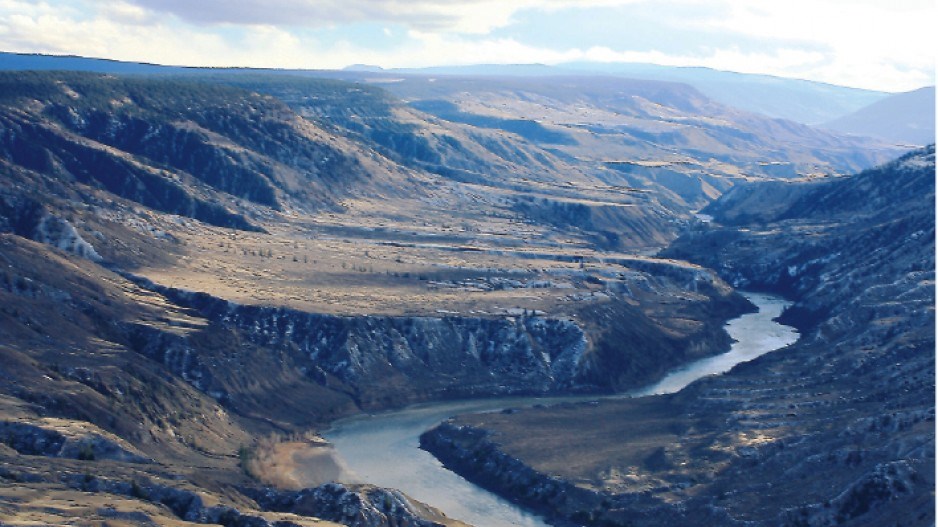Taseko's (TSX:TKO) plan to sink an additional $300 million into its New Prosperity copper gold project to preserve Fish Lake won't kill the economics of the project – unless commodity prices drop.
That's how the company and analysts are viewing the costs contained in the company's new environmental impact statement (EIS) for New Prosperity, which Taseko has just submitted to the federal government.
In November 2010, the federal government rejected the project's first incarnation on environmental grounds – principally because it would have destroyed Fish Lake. The new plan, which boosts the project cost by $300 million to $1.1 billion, no longer requires draining Fish Lake.
The new plan moves the mine tailings pond 2.5 kilometres upstream to preserve spawning habitat to support the lake. Brian Battison, Taseko's vice-president of corporate affairs, told Business in Vancouver that lower commodity prices when Taseko launched its original Prosperity project in 2005 wouldn't have supported the additional $300 million price tag. He added that, in 2005, the consensus per-pound price for copper was US$1.32 and that by 2010, it had risen to US$2.25.
"It's only now, because of these higher prices in gold and copper, that we're able to add an additional $300 million to the project and save Fish Lake," he said
Analysts, speaking on condition of anonymity, told Business in Vancouver that, despite a recent slide in the price of copper and the new $300 million hit, the project's economics still hold up.
But they added that, with a large question mark as to whether the federal government will approve the project on a second go-round, they're currently ascribing no value to the project in their target stock prices for the company.
In recent months, Taseko has continued to draw fire from New Prosperity opponents, such as the Western Canada Wilderness Committee and the Tsilhqot'in Nation, who contend that the new plan is still harmful to the environment.
But Battison said Taseko is "very confident" that its new proposal will receive government approval. However, he added that the decision is in Ottawa's hands and cautioned that to that too long a delay could scuttle the project's feasibility.




